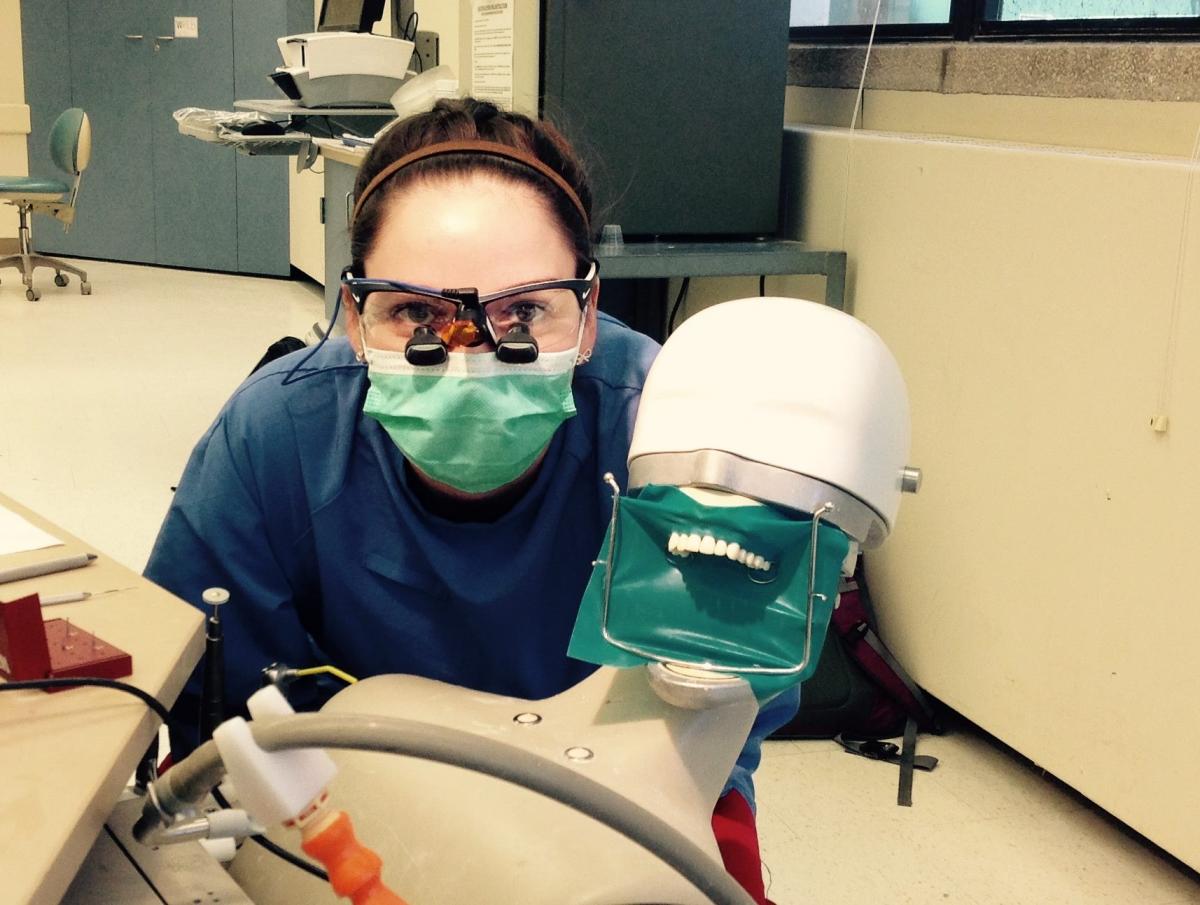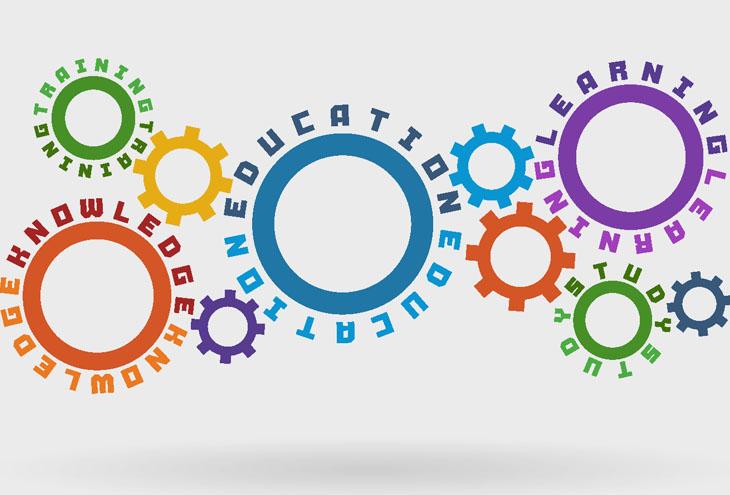The time could be now
If you’re a busy professional with career aspirations, you’ve probably wondered about enhancing your credentials through continuing education. Maybe you’ve looked into expanding your skill set, but never taken the next step. After all, it can be tough to commit extra time and energy to something when you’re already giving it 100 percent in your day job.
So what exactly is continuing education? Why does it matter, and how do you know if it’s right for you? Here’s a straightforward breakdown.
What Counts as Continuing Education
The options for higher learning as a professional are almost as unlimited as the potential benefits — whether it’s in the classroom, out in the field, or on a digital platform. “In general, any time you return to studies of any kind to learn something new, you are continuing your education,” says higher education expert and AcademyOne CEO and founder David K. Moldoff. “It’s a way to refresh knowledge and gain additional skills and insights — and may or may not be focused on a degree outcome.”
Whether your motivation is personal development, getting a promotion within your organization, or getting yourself back on the job market with a more impressive resume, you can pursue continuing education at any time in your career. It can open up new doors, prepare you to compete for that job you’ve always wanted, position you to make a career transition, or simply leave you feeling more prepared and qualified to excel in the job you have.
What It Looks Like
What continuing education looks like for you will in part depend on your career path. If you work in a field like education or health care, there may be additional certifications or degrees that could lead to a measurable increase in earning power. According to the Bureau of Labor Statistics, in certain fields, professionals with a master’s degree can earn markedly higher salaries.
But it’s not necessarily about the significant investment of time and money that’s required for a credential or degree. Is there an aspect of your job you would like to master before you take the next step in your career? For more reserved individuals, that might mean taking a course in public speaking. For someone who’s a whiz at numbers but not so great at visual presentation, perhaps there are new graphics software skills that could make a big difference. In some careers, learning another language can be a real plus.
Just as there are varied topics to explore when it comes to enhancing skills, there are numerous resources available. “The ways you can achieve continuing education are diverse,” advises Moldoff. “A school can be a traditional classroom or conference center setting, or it can take place online. You might start before dawn, study after work, or dedicate weekend time to learning activities.”
What to Consider
Experts agree that if you’re going to pursue some kind of continuing education, it should work with your schedule and commitments so that it’s an overall positive experience. “It’s important to think things through ahead of time and get guidance when you need it,” says Moldoff, who adds that the key questions you should consider include the following:
- What exactly do I want to achieve?
- Can I afford it?
- Is this the right time in my life?
- What is the best learning format and style for me?
When it comes to financing continuing education, you should check with your employer to see if you have any relevant benefits, such as a tuition reimbursement program. Also, adults have the option to enroll in — and benefit from — 529 college savings plans.
After you’ve given continuing your education some thought, you can always decide to take small steps at first. You might try devoting some time every week to an online training course and think of it as a trial run. Or you could commit to a weekend retreat or conference on a topic that’s relevant to your field and see if it sparks any ideas about rounding out your professional strengths. Advancing your skill set is a very individual process; there’s no continuing education recipe that will work for everyone. It’s about growth and learning, and what that means for you and your career.
It’s Up to You
You may even find that the process of pursuing continuing change leads to an almost immediate improvement in your outlook. Experts tell us that making this kind of commitment can be powerful. “Whether the continuing education you pursue takes months or years to complete or just hours, it makes a meaningful difference,” says Moldoff. “In some cases, your career advancement, or even your happiness, could depend on it.”
Whatever your circumstances or priorities, learning never has to stop — continuing education is always an option. It can take a form and pace that’s right for your work and your life. Bottom line: it’s up to you!
 Dr. Renelle Conner, Yakama, was raised on the Yakama Indian Reservation in Washington State. After serving in the Air Force and training as a meteorologist, she decided to change course, return to school, and become an orthodontist. Here Dr. Conner shares insights on her journey to continue her education, as well as lessons she learned along the way.
Dr. Renelle Conner, Yakama, was raised on the Yakama Indian Reservation in Washington State. After serving in the Air Force and training as a meteorologist, she decided to change course, return to school, and become an orthodontist. Here Dr. Conner shares insights on her journey to continue her education, as well as lessons she learned along the way.
What is your educational experience?
While on active duty in the U.S. Air Force I received 22 months of training as a meteorologist and took college classes. From this, I earned an associate degree. When I left active duty, I transferred to the reserves and cross-trained in dental assisting. I then became a full-time student at Eastern Washington University and earned my bachelor of science degree. After Eastern Washington University, I went to dental school at the University of Washington. I graduated in 2017 and have been attending an orthodontic residency program at A.T. Still University since then.
Did you always know what you wanted to do as a career?
When I was in high school I thought about being an orthodontist, but then I learned that I would have to go to school full time for 11 years, so I decided against it. I really appreciated my orthodontist and the work that he did for me. I thought about doing that for others, but I didn’t want to put in the effort to complete all the years of school required. While I was stationed in Alaska for the Air Force, an Air Force oral surgeon and prosthodontist completed my dental treatment plan that the orthodontist had started. After this work was completed, I again thought about being an orthodontist.
About 18 months before my enlistment was up, I started thinking about what I wanted my life to be like when I got out of the military. I decided that I wanted a career where I could afford to take a vacation once a year, my husband didn’t have to work if he didn’t want to, I could do something that was fulfilling, and I didn’t have to do shift work. When I told my sister, an ER nurse, that I was thinking about becoming a dental hygienist, she said that the doctors she works with say that if they could do it all over again, they would go to dental school and wouldn’t specialize. I thought about this and decided that if I became a hygienist, I would be selling myself short. I should go to dental school and see what it is all about, because maybe I would like it better than orthodontics. So I completed my bachelor’s degree and started dental school with the mindset that I would be a dentist. During my third year of dental school, I decided that I still wanted to be an orthodontist, so I applied for orthodontic residencies. I will graduate from my residency program in December.
Is there anything that you wish you’d known earlier?
I wish I would have known that I could use my GI Bill for dental school. When I was getting out of the Air Force, I was told that it could be used only for a bachelor’s degree. When I arrived at Eastern Washington University, I explained to the school VA representative that I was using my GI Bill for my bachelor’s degree because I wouldn’t be able to use it for dental school. He didn’t bother to correct me. I found out later that I could have used my GI Bill for dental school, and so went back to let the same VA rep know what I found out. I didn’t want other people in my position to make the same mistake. His response was, “That doesn’t matter because people here don’t go beyond a bachelor’s.”
What are your current career goals?
I’m currently looking for associate orthodontic positions in Washington and Oregon, and would like to work for a private practice, corporate office, or community health center. It’s not possible to work full time for the Indian Health Service, but I am hopeful there is funding that would allow me to work there one day a week. I have been a dental assistant in the Air Force Reserve since 2009. I’m still a dental assistant because I am enlisted, but I hope to transition to an officer. As an officer, I can be a dentist in the Air Force Reserve. I would not be hired as an orthodontist in the Air Force Reserve because there are no orthodontist positions.













